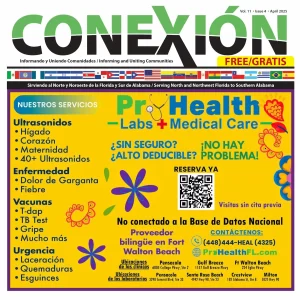By Elizabeth Ricci, Immigration Lawyer
While some elderly foreigners may overcome some trials with a unique approach to immigration applications.
Foreign senior citizens who do not have a family of US citizens. UU. Immediate, labor sponsorship or the ability to make a significant investment to those who would like to retire in the US. UU. They probably can’t do it, except as tourists. However, the temporary nature of the tourist visa is not practical for those seeking full-time relocation. The “Silver Card,” a visa that would have allowed wealthy seniors to retire in the United States never became law. In addition, the point-based system proposed by President Trump would not award points to those over 50.
Qualified senior citizens from abroad may consider self-sponsorship for the Permanent Residence (the “Green Card”) through a route little known as the National Interest Waiver (NIW). Through the NIW, a foreigner with an advanced degree whose work has substantial merit and is of national interest is well-positioned to continue that work and can convince immigration authorities that it would benefit the United States if it waives the requirements of the traditional case. Get the green card for them and your spouse on your own.
M.K. Kasprowicz did exactly that. At 67, he and his wife wanted to move to the Emerald Coast of Florida. The mechanical engineer born in Poland said: “I detailed my engineering achievements and explained that I wanted to work part-time as a consultant. In about six months, my wife and I got our Green Cards. “
US retirees may need a legislative solution to achieve a significant change.
The supply of health workers far exceeds the demands of the 47 million Americans over 65. Foreigners account for more than half of all geriatricians, 15 percent of nurses and 17 percent of home health workers in the United States. However, doctors who have a J-1 visa must generally practice in underserved areas or return to their home countries for two years. Other foreign doctors are in limbo due to the uncertainty of the employment authorization for H-4 holders. RNs, on the other hand, are generally not eligible for the H-1B visa or face the puzzle that some states require a valid immigration status to obtain the license, while the USCIS requires a state license to guarantee the state. In addition, there is no specific visa for home health workers. These obstacles can cause delays in care for family members to leave the workforce to care for their loved ones or violate the law and hire undocumented caregivers.
Twyla Sketchley, a lawyer for the elderly, says: “Congress needs to find a way to allow qualified foreign health workers to take care of our aging population. Otherwise, the costs of care will increase exponentially, leaving many senior citizens with no way to pay for the necessary care and to sustain life. “
Elderly foreigners and Americans face real-life obstacles, either to emigrate or because of the lack of immigrants. It is up to Congress to relieve significant changes.
Attorney Elizabeth Ricci is an expert in immigration law and has taught and written extensively on the subject. He has appeared in The New York Times, CNN, Wall Street Journal and in Fox News. It focuses on National Interest Exemptions from Rambana & Ricci, PLLC in Tallahassee, Florida.


